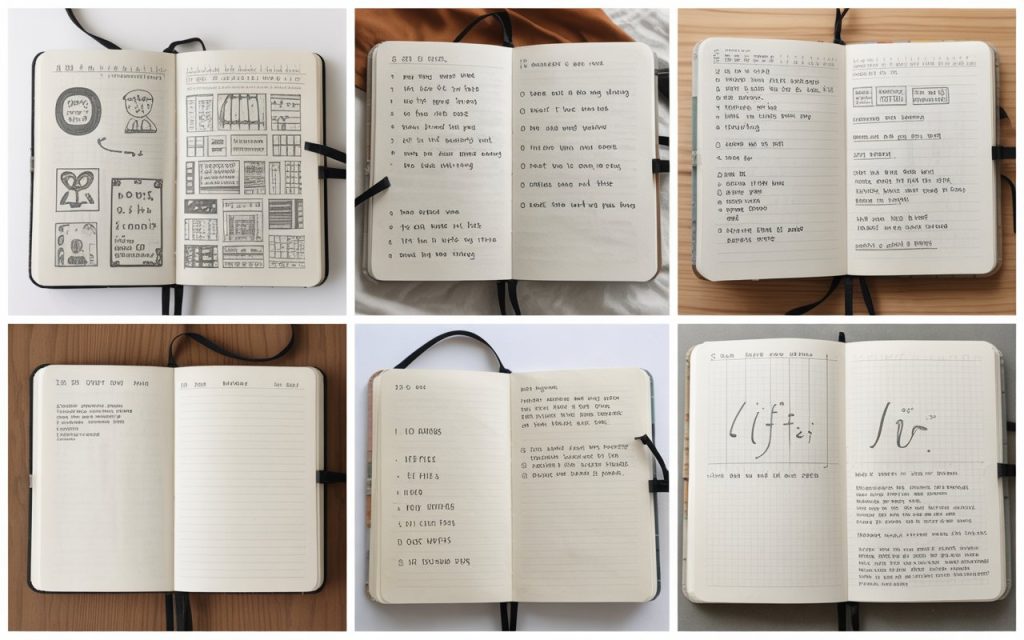Journaling: Powerful Tool for Global Mental Health
Your Simple Guide to the Rise and Impact of Journaling for Mental Well-being

Journaling is more than just writing in a notebook. It has grown into a powerful tool for mental health around the world. Millions of people use journaling to manage stress, understand their feelings, and improve their well-being. This article will explain how journaling became a global mental health tool, why it works, and how you can start using it in your own life—all in simple, easy-to-understand English.
What Is Journaling?
Journaling means writing down your thoughts, feelings, and experiences. It can be done in a notebook, on a computer, or even on your phone. The goal is to express yourself and reflect on your life. Journaling is private, personal, and can be done any time you want.

The History of Journaling
People have been writing in journals for hundreds of years. Famous writers, leaders, and everyday people have used journaling to record their lives and thoughts. In the past, journaling was mostly a way to keep memories or tell stories. Today, it is also used as a tool for mental health and self-care.
How Journaling Became a Mental Health Tool
Journaling started to become popular for mental health in the late 20th century. Doctors and therapists began to see the benefits of writing for people with stress, anxiety, and depression. Research showed that journaling could help people feel better, understand their emotions, and solve problems.
As mental health awareness grew, more people tried journaling for themselves. Social media and the internet made it easier to share tips and ideas. Today, journaling is a common practice for people of all ages and backgrounds.

Why Journaling Works for Mental Health
Journaling works for mental health in many ways:
- Reduces stress: Writing about your feelings can help you let go of worries and calm your mind.
- Improves mood: Expressing yourself can make you feel happier and more relaxed.
- Helps you understand yourself: Writing helps you see your thoughts and feelings more clearly.
- Solves problems: When you write about a problem, you often find new ideas and solutions.
- Builds self-confidence: Reflecting on your achievements and challenges helps you grow.

The Science Behind Journaling
Many studies have shown the benefits of journaling for mental health. Research has found that people who write about their feelings:
- Feel less stressed and anxious
- Have better emotional well-being
- Are more able to cope with challenges
- Experience improved immune function
Scientists believe that journaling helps the brain process emotions and make sense of experiences.
Table: Journaling vs. Other Mental Health Tools
| Tool | How It Helps Mental Health | Who Can Use It | Cost |
|---|---|---|---|
| Journaling | Reduces stress, improves mood | Everyone | Low/Free |
| Therapy | Professional support, advice | People with mental health needs | Medium/High |
| Medication | Treats symptoms of mental illness | People with diagnosed conditions | High |
| Meditation | Calms the mind, reduces anxiety | Everyone | Low/Free |
Types of Journaling
There are many ways to practice journaling. Here are some popular types:
- Free writing: Write whatever comes to mind, without worrying about grammar or spelling.
- Gratitude journaling: Write about things you are thankful for.
- Reflective journaling: Think about your day and how you felt.
- Prompt-based journaling: Use questions or prompts to guide your writing.
- Art journaling: Combine writing with drawing or painting.

How to Start Journaling
Starting journaling is easy. Here are some simple steps:
- Choose your tools: Use a notebook, computer, or phone.
- Find a quiet place: Pick a spot where you feel comfortable.
- Set a time: Try to write at the same time each day.
- Write freely: Don’t worry about making it perfect. Just write what you feel.
- Be honest: Write about your true thoughts and feelings.
- Keep it private: Your journal is for you. You don’t have to share it.
Tips for Effective Journaling
To get the most out of journaling, try these tips:
- Write regularly: Even a few minutes a day can help.
- Focus on your feelings: Write about how you feel, not just what happened.
- Be kind to yourself: Don’t judge your writing or your feelings.
- Try different styles: Experiment with different types of journaling.
- Look back: Sometimes, reading old entries can help you see your progress.

Real-Life Examples of Journaling
Here are some real-life examples of how people use journaling:
- Maria, a student: Maria writes in her journal every night before bed. It helps her relax and prepare for the next day.
- Tom, a business owner: Tom uses journaling to solve work problems and reduce stress.
- Lisa, a parent: Lisa writes about her feelings and experiences as a parent. It helps her feel less alone.
How Journaling Helps Different People
Journaling can help people of all ages and backgrounds:
- Children: Helps them express their feelings and build self-awareness.
- Teens: Helps them cope with stress and understand their emotions.
- Adults: Helps them manage work, family, and personal challenges.
- Seniors: Helps them reflect on their lives and share their stories.
The Role of Technology in Journaling
Technology has made journaling easier and more popular. Many people use apps, blogs, or online tools to write and reflect. Digital journaling can be private or shared with others. It also allows for multimedia, like photos and videos.

How Journaling Became a Global Trend
Journaling has become a global trend thanks to the internet and social media. People share their journaling tips, prompts, and experiences online. This has helped spread the practice to new countries and cultures. Today, journaling is used by millions of people around the world.
The Benefits of Journaling for Mental Health
The benefits of journaling for mental health are clear:
- Reduces anxiety and depression
- Improves self-esteem and confidence
- Helps with trauma and grief
- Encourages self-reflection and growth
- Promotes better sleep and relaxation

How to Make Journaling a Habit
Making journaling a habit is easy if you follow these steps:
- Start small: Write for just a few minutes each day.
- Set reminders: Use your phone or calendar to remind you to write.
- Make it enjoyable: Use a nice notebook or a favorite pen.
- Be patient: It may take time to see the benefits.
- Celebrate your progress: Notice how you feel after writing.
Common Challenges and How to Overcome Them
Some people find it hard to start or keep up with journaling. Here are some common challenges and how to overcome them:
- Not knowing what to write: Use prompts or write about your day.
- Feeling too busy: Write for just a few minutes, or try journaling before bed.
- Worrying about privacy: Keep your journal in a safe place or use a password-protected app.
- Feeling stuck: Try a different type of journaling, like art or gratitude journaling.

The Impact of Journaling on Society
Journaling has a positive impact on society. When people take care of their mental health, they are happier, healthier, and more productive. Journaling also helps people understand themselves and others better. This can lead to stronger communities and a more caring world.
How to Encourage Journaling in Your Community
You can help others discover the benefits of journaling by:
- Sharing your experiences: Talk about how journaling helps you.
- Giving journals as gifts: Encourage friends and family to try journaling.
- Hosting journaling groups: Start a group where people can write and share together.
- Promoting mental health awareness: Support campaigns that encourage self-care and journaling.

Frequently Asked Questions (FAQs)
Q: What is journaling?
A: Journaling is writing down your thoughts, feelings, and experiences to help your mental health.
Q: How does journaling help mental health?
A: Journaling reduces stress, improves mood, and helps you understand your emotions.
Q: Do I need to write every day?
A: No, you can write as often as you like. Even a few times a week can help.
Q: What if I don’t know what to write?
A: Try using prompts or writing about your day. You can also draw or make lists.
Q: Is journaling private?
A: Yes, your journal is for you. You don’t have to share it with anyone.
Q: Can children and teens use journaling?
A: Yes, journaling is helpful for people of all ages.
Q: What if I don’t like writing?
A: You can try art journaling or use voice notes instead of writing.
Q: How long should I write?
A: Even a few minutes is enough. Write for as long as you feel comfortable.
Q: Can journaling replace therapy?
A: Journaling is a helpful tool, but it does not replace professional therapy if you need it.
Q: How do I make journaling a habit?
A: Start small, set reminders, and make it enjoyable.
The Future of Journaling
Journaling will continue to grow as a mental health tool. New technology, like AI and apps, will make it even easier and more personal. More people will discover the benefits of journaling for their mental well-being.

Conclusion
Journaling has become a global mental health tool because it is simple, effective, and accessible to everyone. By writing about your thoughts and feelings, you can reduce stress, improve your mood, and understand yourself better. Start journaling today and see how it can help you live a happier, healthier life.




